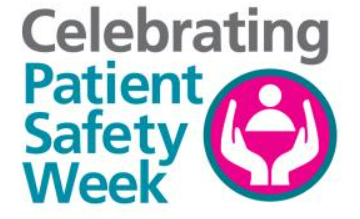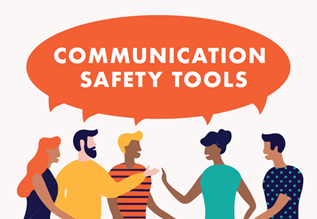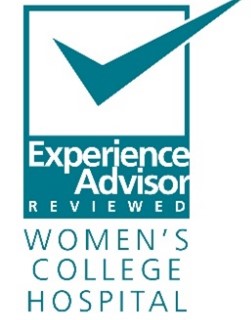By Chandra Farrer

Women’s College Hospital is proud to participate in Canadian Patient Safety Week (October 24-28, 2022) in partnership with Healthcare Excellence Canada and alongside organizations from across Canada. Patient safety takes a team and, this year, we will be celebrating Patient Safety Week by reflecting on the many ways our clinical and non-clinical staff and physicians work together to keep our patients safe and by thanking them for their hard work.
What to expect during Patient Safety Week
All staff and physicians have the opportunity to spread messages of appreciation to their peers using the virtual Patient Safety Thank You cards. Starting October 24, visit the Patient Safety Week intranet page to complete the virtual card and send it to your colleagues. Each day during Patient Safety Week, both the sender and recipient will be entered into a draw for exciting electronic gift cards.
Press Play on Safety Conversations

This year’s theme for Patient Safety Week is “Press play on Safety Conversations” focusing on safer care through safety conversations and actions. Effective communication is a recognized safety best practice and an Accreditation standard. It is estimated that communication errors are a major factor in more than 70% of healthcare adverse events. Ineffective communication can contribute to misdiagnoses, treatment errors, delays, re-work, frustration, healthcare worker injury, patient injury, and even death. By promoting a culture that values a workplace where everyone feels safe coming forward and is confident that they will be treated fairly, standardized communication tools help to keep patients and staff safe. Furthermore, a culture of safety allows us to learn and innovate from our errors and make the necessary changes to prevent them from recurring, or to reduce the risks of harm when something does not go as anticipated.
Women’s College Hospital has implemented three common Communication Safety Tools applicable to the ambulatory care environment in both clinical and non-clinical work situations.
I Have A Safety Concern
“I have a safety concern” is a phrase used to raise or escalate a safety concern. The statement requests that the listener pause and create a safe space so that both the sender and listener can reflect on the concern together. It was adapted from similar tools in other settings such as “Stop the Line” and “Speak Up”.
“I have a safety concern” recognizes everyone’s role in creating a culture of safety and aims to empower all staff to act by indicating to others that a moment of reflection is needed to resolve an issue. It can be used by anyone at WCH anytime they want to raise or escalate a safety concern.

“I have a safety concern enables staff to collectively build a strong patient safety culture” says Dr. David Urbach, MD & Head, Department of Surgery. “When I hear that phrase, I stop and listen. It signals that a colleague may have seen or become aware of something I haven’t. I know they are looking out for others by identifying a safety concern, no matter how small. In these busy times, effective teamwork and communication are essential.”
To learn more click on the following links: I Have A Safety Concern One Pager or I Have A Safety Concern QTip
SBAR (Situation, Background, Assessment, Recommendation)

SBAR is a situational briefing tool providing a standardized communication framework. Standardization ensures concise, accurate, clear and timely communication, which is particularly important given variations in communication styles. SBAR can be used to discuss or escalate an issue to generate an action plan. SBAR is not used for general information sharing or for non-actionable items.
To learn more click on the following links: SBAR One Pager or SBAR QTip
Teach Back
Teach Back is recommended for patient education to enhance health literacy. It also has a role in closed loop communication between providers. Teach Back can be used when giving instructions or anytime retention is vital.
WCH Experience Advisors were given the opportunity to learn about Teach Back and shape how staff are trained in its use. “Teach Back is a valuable tool for patients and their care partners” says Kate Mlodzik, WCH Experience Advisor since 2018, “When paired with visual materials such as handouts and photos, it helps to solidify patients’ understanding of medical instructions and ensures that they are active participants in their care.”
To learn more click on the following links: Teach Back One Pager or Teach Back QTip
In addition to Communication Safety Tools, our teams demonstrate safety behaviours every day to meet the needs of our patients. As teams prepare for Accreditation, all departments and teams are reflecting on processes that promote safety that are core to their daily work including (but not limited to):
- Hand Hygiene
- Teamwork and Collaboration
- IRIS (incident) Reporting
- Positive Patient Identification
- Patient/Family Communication and Education
- Medication Safety
- Falls Prevention
- Virtual Care
- Speaking up/Asking Questions
If you have any questions, please contact the Quality, Safety & Patient Experience team at patientsafety@wchospital.ca
Thank you for keeping our patients safe!